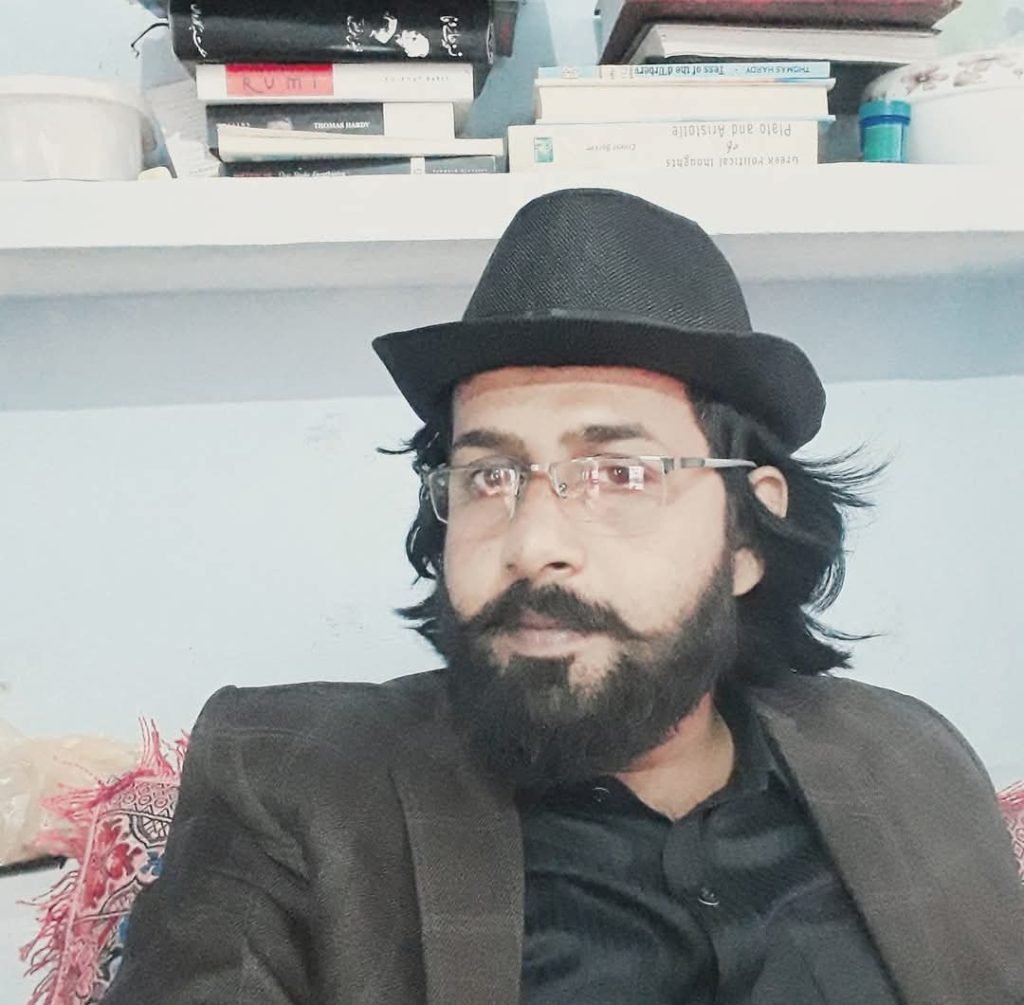
About
Mason Carter (pen name of Mushahid Syed) is a poet, writer, and lecturer in English Language & Literature at Shah Abdul Latif University, Ghotki Campus. Since 2018, he has been dedicated to teaching, writing, and sharing his passion for literature.
Beyond academia, he explores the beauty of words through poetry, fiction, and academic books, weaving stories that resonate with readers worldwide. He also offers online courses at Class with Mason, making education accessible to all.
All his books are available at Amazon.com and Amazon.in
Introduction
While surfing through Goodreads I came across the books of Mason Carter and realized that he was actually from Pakistan and his real name was Mushahid Syed; I am quite a detective in my own humble way. I also learned that Mason was a Professor of English Language and Literature in a reputed Pakistani college and was the Head of the Department in the same college for 4 years. I then felt it was necessary for me to interview him for my blog insaneowl.com, where one can find only the best bookishly delicious content. In Mumbai, I’ve rarely seen a male teaching English Literature at even the I.C.S.E school level, let alone any college or University level, and let alone being the Head of the Department of the same! It was a pleasure to come across and interact with Professor Mason, especially over my short story titled ‘Caste Metal’. I am currently reading his book on philosophical table-talk fiction titled A Philosophy of Scars: A Story of Broken Hearts and Overthinking Minds, which is blowing my mind away. Wow, what a gripping book! I’m honored to have Mason Carter as my interviewee on my blog, Insaneowl.com. Welcome to insaneowl.com, Professor Mason!
Interview
Fiza: First of all, thank you for accepting my friend request on Goodreads and contacting me so promptly despite your (I’m sure) hectic teaching schedule. You are quite a gentleman and must be the star of your classroom. Is that inference of mine accurate?
Mason: I appreciate your kind words! That is so humble of you! Teaching is certainly a demanding yet rewarding profession, and while I strive to create an engaging and thought-provoking environment for my students, whether I’m the “star” of the classroom is up to them to decide. My goal is always to challenge, inspire, and encourage critical thinking—if that makes me stand out, then I’ll take it as a compliment!
It’s a pleasure to connect with fellow readers and thinkers on Goodreads.
Fiza: What made you want to teach English Language and Literature at college?
Mason: I’ve always been drawn to books, even from a young age. My curiosity first led me to explore the major religious texts—The Bible, Quran, Bhagavad Gita, Dao De Jing, Zend-Avesta, Kardec’s writings on Spiritism, and even works on Wicca by Raymond Buckland and Gerald Gardner. That early exposure to different philosophies and worldviews shaped my love for reading.
Then, in 8th or 9th grade, I encountered Romeo and Juliet—Shakespeare mesmerized me. From there, my interests expanded into ascetic literature, like Jack London’s To Build a Fire, Thoreau’s Walden, and Tolstoy’s works, particularly The Slavery of Our Time. By the time I reached the 10th standard, my cousin, Haroon Shah, was pursuing a BSML at NUML. I asked him for his syllabus and devoured the entire reading list before even reaching intermediate.
When I entered university, I was already well-prepared. I never bought a single textbook or kept a notebook throughout my four-year honors degree—I had already absorbed everything I needed. But my love for literature wasn’t just about reading; it was about purpose. Since the 7th standard, I knew I wanted to be a university professor. I never wavered from that goal, and now, teaching at Shah Abdul Latif University, Ghotki Campus, I can confidently say—this is a dream come true. Literature wasn’t just an interest; it was my calling.
Fiza: Usually in India even today, parents always force their boys to take up ‘manly’ subjects like Math, Physics, Chemistry, Biology, Robotics, Business Studies, Accounts, et al, so that they can become either engineers, doctors, or computer software techs, or corporate businessmen, or corporate lawyers. No one here ever encourages their boys to take up the humanities, and certainly not English Literature. The focus is always on the Sciences and Maths. Have you ever faced the same kind of diffidence from your parents over your choice? Or is there another take on this whole subject in Pakistan compared to the situation in India?
Mason: That’s a very insightful observation, and yes, the societal push toward STEM fields—engineering, medicine, computer sciences, and business studies—is strong in Pakistan, much like in India. These fields are often seen as the most “practical” and financially secure career paths, while the humanities, particularly English Literature, are sometimes viewed as less lucrative or even “impractical” for men, who are expected to be primary earners.
However, my experience was different. My parents never discouraged my passion for literature. Perhaps they saw my relentless enthusiasm for reading from an early age or simply trusted that I would carve my own path. By the time I entered university, I had already read advanced texts and even completed university syllabi out of sheer interest. So, choosing literature wasn’t about avoiding challenges—it was a natural extension of what I loved.
That said, the perception of the humanities isn’t uniform across Pakistan. In Sindh, particularly where I teach now, the trend is quite different. A significant number of male students opt for English Literature or Linguistics. At Shah Abdul Latif University, Ghotki Campus, we have around 60% male students and 40% female students in these disciplines, which challenges the stereotype that humanities are neglected by men. This suggests that, at least in certain regions, literature and language studies are gaining recognition as valuable fields of study.
Fiza: Who were/are your parents, and how did they influence you to become the professor, teacher, entrepreneur, author, and poet you are today? Who else makes up your family and close friend circle?
Mason: My father, a retired primary school teacher, and my mother, a housewife, supported my studies wholeheartedly.
One of my greatest influences was the late Judith E. Moody, a professor at Marymount University, who called me her nephew. Before meeting her, I was deeply influenced by a fiery preacher, engaging in religious debates and conversions with a narrow-minded outlook. But Judith’s unconditional love taught me that kindness matters more than arguments and that all faiths preach compassion. She helped me embrace diversity, make friends across religions, and lead by example rather than debate.
My cousin Farooq Shah inspired my love for logic and critical thinking, while my close friends—Tahir, Qasim, Adil, Adnan, Gullam Abbas, and Naveed Muntazir, (there is a long list, I can’t mention them all)—have enriched my life with wisdom, humor, and deep discussions. I am grateful to be surrounded by such incredible mentors and companions.
Fiza: Did any of your school friends also take up English Literature as a subject for further studies, or were you the only one to do so at that time? Do you think the situation has changed since then?
Mason: Some of my school friends whom I stayed in contact with didn’t opt for humanities, let alone literature. I changed schools a few times when I was young, so I lost touch with most of my schoolmates. But life is a race—we keep moving forward.
One of my close friends, the late Hosh Muhammad, used to say that true friendship isn’t about staying in touch constantly; it’s about meeting after years and feeling like no time has passed. What matters is not changing. I’ve kept this as a principle in my life. With hundreds of friends from university, college, workplaces, and thousands of students, it’s impossible to stay in contact with everyone. If I tried, I wouldn’t have time for my daughter, my wife, or even myself. So, I believe Hosh’s wisdom is a practical truth—real bonds don’t fade with distance or time.
Fiza: Tell my readers here on Insaneowl.com more about yourself till you became a published author on Amazon.
Mason: Well, I’m a simple guy—a geek, a bookworm. I read a lot, became a lecturer, and writing is just a natural extension of my love for literature and philosophy.
I love music, and some of my favorite bands and singers are My Chemical Romance, Green Day, Evanescence, Brad Paisley, Jagjit Singh, Nusrat Fateh Ali Khan, and Eddie Vedder. As for writers who have influenced me, the list is long—Edgar Allan Poe, William Blake, Emily Dickinson, Henry Vaughan, Peter Kropotkin, Errico Malatesta, Mikhail Bakunin, Murray Bookchin, Gregory Maximoff, Noam Chomsky, Javed Ahmed Ghamidi, Jaun Elia, Saadat Hasan Manto, and Bertolt Brecht.
I enjoy coffee and deep discussions on philosophy, socioeconomic and political theories, literary theory, and social issues. But above all, I love spending time with my daughter, Elsa. She was born on October 25, 2021, and she’s been my world ever since. We play together, watch TV, and she even does my makeup—she’s really into it, haha.
Fiza: Which is your subject of specialization in English Literature? Or what is your specialty in this field?
Mason: My specialization in English Literature primarily revolves around literary theory, critical discourse analysis, and the intersection of literature with philosophy, politics, and social structures. I have a particular focus on libertarian socialism, specifically Murray Bookchin’s libertarian municipalism, and how literature serves as a medium for resistance, decentralization, and envisioning alternative social structures.
Beyond that, I’m deeply interested in poetry—especially the works of Edgar Allan Poe, William Blake, and Emily Dickinson—as well as existential and revolutionary literature. I analyze themes of oppression, liberation, and community-driven governance in literary texts, often interpreting them through political and philosophical frameworks.
In short, my specialty lies in critically examining literature not just as an art form, but as a means of challenging hierarchical systems and imagining democratic, decentralized alternatives.
Fiza: My mother, a junior school English teacher all her life, was very disappointed with me the day I chose History and Sociology as a double major at the undergraduate level and then Catholic Theology at the Masters level. She got even more flummoxed when, for my post-graduate degree course or B. Ed, I chose History as a major. She then under the pain of death (mine – by denying me my morning coffee forever!) forced me to also do a double major in English along with History during my B. Ed course. She felt only women were meant to teach the humanities, especially English Literature. What would you say in answer to all that?
Mason: I’d say that’s quite an intense way to enforce a double major—threatening to take away morning coffee is no small punishment! Jokes aside, I think your mother’s perspective reflects a common notion that humanities, particularly English Literature, are more suited for women, while men are expected to pursue technical or ‘practical’ fields.
However, in my experience, this divide doesn’t hold true everywhere. The idea that certain subjects are inherently ‘masculine’ or ‘feminine’ is more of a social construct than a reality.
Ultimately, what matters most is passion. Whether it’s History, Sociology, Theology, or Literature, intellectual pursuit should never be confined to gender stereotypes. If anything, literature thrives on diverse perspectives, and the more varied voices we have in the field, the richer it becomes. So, I’d say your mother’s insistence led to an unexpected bonus—you got to study English Literature alongside History! And who knows? Maybe that morning coffee tasted even better knowing you earned it.
Fiza: Are you also a philosopher? Do you have a degree in philosophy? Mention all your educational degrees subject-wise and your many accolades for the same.
Mason:
- Bachelor of Science (BS Hons) in English Language & Literature – Shah Abdul Latif University
- Master of Science (MS) in English Literature – International Islamic University, Islamabad
While I don’t have a formal degree in philosophy, my research and studies have always been interdisciplinary, bridging literature, critical theory, and political philosophy. I’ve extensively studied and engaged with philosophical works on my own, particularly in libertarian socialism, existentialism, and critical discourse analysis.
In terms of accolades, my recognition comes from my contributions to academia, writing, and research. I’ve published research papers, authored books, and have had the privilege of teaching at the university level, where I mentor students in critical thinking and literary analysis. More than any official recognition, I consider the impact of my work and the engagement of my students as my greatest achievement.
Fiza: What made you want to publish and write books? What are the books you’ve written so far?
Mason: Writing has always been a natural extension of my love for literature, philosophy, and critical thinking. As someone who has spent years reading and analyzing texts, the urge to contribute my own thoughts and research to the literary and academic world felt inevitable. I see writing as a way to engage in larger conversations—whether about literature, political philosophy, or social issues.
Beyond that, I’ve always believed that knowledge should be accessible. Publishing allows me to share my insights with a wider audience, challenge conventional narratives, and contribute to discussions on literature, society, and governance. It’s also a way to leave something behind—ideas that might inspire or provoke thought in others.
As an author, I’ve explored various genres, including fiction, nonfiction, and academic writing. Here are some of my published works:
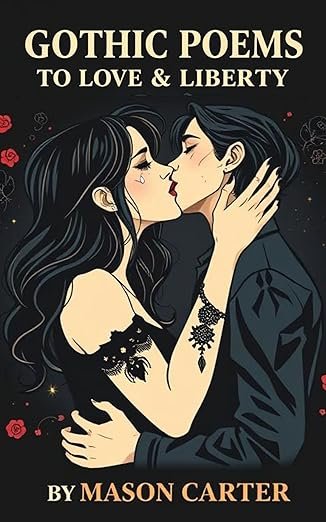
Gothic Poems: Love, Loss, and Liberty – A Collection
A collection of gothic-themed poetry that explores love, loss, and the yearning for freedom, blending dark romanticism with deep philosophical musings.
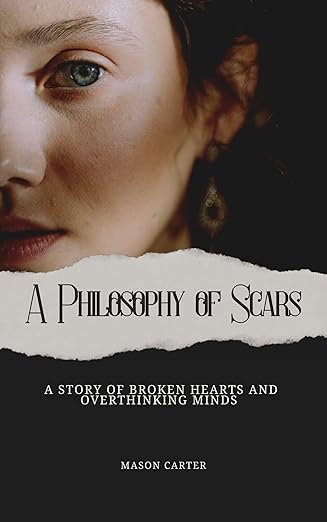
A Philosophy of Scars: A Book on Broken Hearts, Overthinking, and the Art of Moving On
A reflective book examining emotional wounds, heartbreak, and the philosophical lessons we learn through suffering, resilience, and healing.
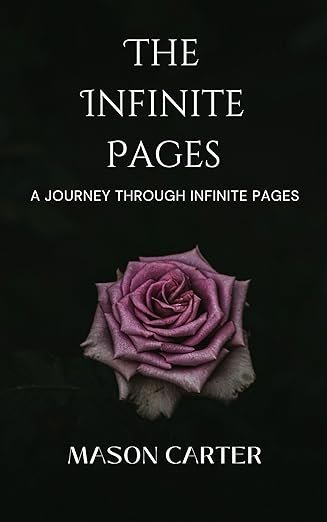
The Infinite Pages: A Journey Through Unfinished Stories
An unsettling, mesmerizing journey through strange and unfinished tales that defy resolution. Each story lingers like a whisper in the dark, pulling readers into a world where reality bends and memories unravel.
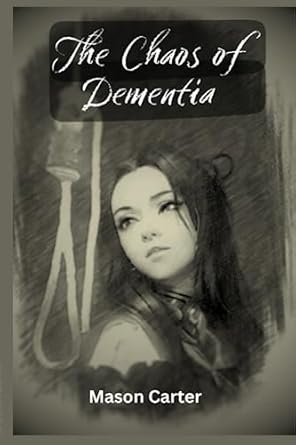
The Chaos of Dementia
A poignant exploration of the complexities of dementia, delving into the emotional and psychological turmoil experienced by those affected. This work aims to shed light on the often-overlooked aspects of the condition.
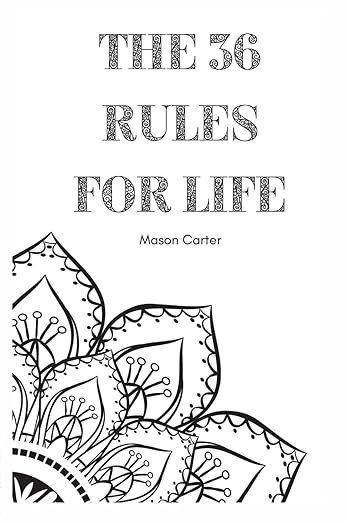
The 36 Rules for Life
In this insightful book, I share 36 invaluable rules personally learned throughout my life, offering readers a roadmap to a more purposeful and happier existence.
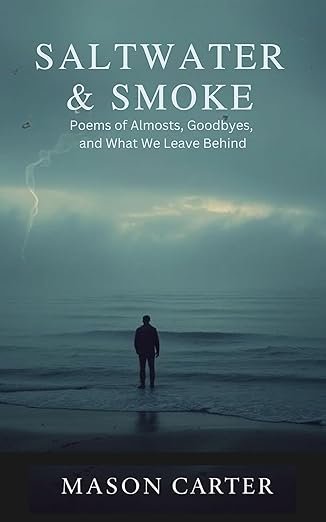
Saltwater & Smoke: Poems of Almosts, Goodbyes, and What We Leave Behind
A collection of poems exploring themes of love, loss, and the transient nature of human connections.
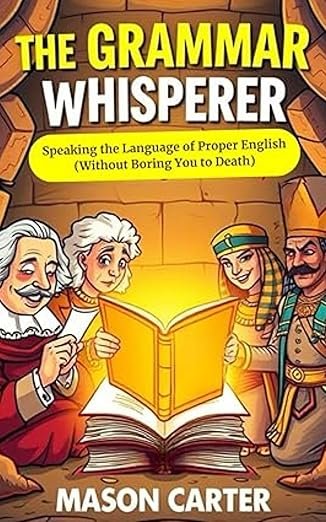
The Grammar Whisperer: Speaking the Language of Proper English
A comprehensive guide aimed at enhancing readers’ understanding and use of proper English grammar.
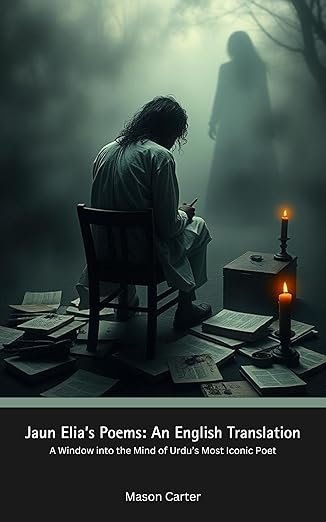
Jaun Elia’s Poems: An English Translation
An English translation offering insights into the mind of Urdu’s iconic poet, Jaun Elia.
All my books are available at Amazon.com.
Fiza: Who was your writing mentor or mentors? Who always has your back when you get flack in your writing or publishing ventures?
Mason: My mentors were simple—my teachers and books. That’s it. I had a deep passion for reading, and through that, the art of writing came naturally to me.
Fiza: Which is the best book you’ve written so far according to first you, and then your readers? Can you share some of your readers’ reviews or comments on these books with my readers here on Insaneowl.com?
Mason: Selecting one book as the best is challenging. My works are my attempts at being an author. I’ve received good reviews on my poetry collections. I’ve been writing poetry since 2013, publishing two collections and amassing a vast number of poems.
Fiza: Now, I have a confession to make. I love Islamic names, which is why I cannot understand why you would use the pseudonym Mason Carter for yourself. Mushahid Syed is still an alluring name in my part of the world! What made you take on this name?
Mason: I appreciate your love for Islamic names, and I do agree that Syed Mushahid Hussain Shah Jillani has its own charm. However, I chose the pen name Mason Carter for practical reasons. It’s a name that is easier to remember, pronounce, and recognize internationally. Many writers use pen names to create a distinct literary identity, and for me, Mason Carter serves that purpose.
I started writing under this pen name because Mason was my nickname—my cousins still call me Mason. So, when I began publishing, it felt natural to use a name that was already familiar to me while also being accessible to a global audience. That being said, my real name still holds deep personal and cultural significance, and I am proud of it. But in the world of literature, Mason Carter is the name I’ve built my work around.
Fiza: As I’ve said before, I am reading your book, ‘A Philosophy of Scars: A Story of Broken Hearts and Overthinking Minds.’ It is just awesome. I’m nearing the end, yet I do not want this book to end! It is one of the best table-talk philosophy-cum-horror books I’ve read from an indie writer. Share with my readers here on Insaneowl.com some more details about this mind-blowing book.
Mason: Thank you so much for your kind words! A Philosophy of Scars: A Story of Broken Hearts and Overthinking Minds is a deeply personal work that blends philosophy, gothic horror, and psychological introspection. It explores the scars—both physical and emotional—that shape us, the pain we carry, and the way our thoughts can become both our prison and our escape.
The book is kaleidoscopic in its plot structure, meaning different readers may have different interpretations and layers of understanding depending on their own perspectives and experiences. It weaves together narrative storytelling and reflective discourse, making it a table-talk philosophy meets gothic fiction experience. Thematically, it draws from existentialism, nihilism, gothic literature, and the raw emotions of loss, regret, and overthinking.
I wanted this book to feel like a conversation with an old friend—someone who understands your pain, your anxieties, and your struggles with identity, love, and meaning. It’s for those who have ever felt lost in their own minds, haunted by their past, or trapped by their emotions.
I’m incredibly grateful that you’re enjoying the book, and I hope its multiple layers continue to resonate with you until the very last page!

Fiza: Why should a reader read ‘A Philosophy of Scars: A Story of Broken Hearts and Overthinking Minds’?
Mason: A Philosophy of Scars is a book for those who enjoy stories that explore deep emotions, conflicting thoughts, and the complexities of the human mind.
It follows Mark’s slow psychological decay, blending elements of pessimism, nihilism, and socialist thought—sometimes contradicting, sometimes in harmony. The novel’s kaleidoscopic structure means different readers may take away different interpretations, making it a personal experience for each one.
If you’ve ever found yourself overthinking, questioning existence, or feeling torn between despair and hope, you might connect with this story in unexpected ways. It’s not about easy answers but rather an exploration of emotions and ideas—and if that speaks to you, then perhaps this book will too.
Fiza: I have to ask at this point in relation to your book, ‘A Philosophy of Scars’: Are you, by any chance, the main protagonist in that book?
Mason: Mark is not entirely me, but he carries pieces of my thoughts, emotions, and experiences. Like many writers, I’ve woven some of my own reflections into his character, but he is also shaped by broader themes—philosophical struggles, existential dilemmas, and the contradictions of human nature.
In a way, Mark represents not just me but anyone who has ever battled overthinking, disillusionment, and the search for meaning. He is a mix of pessimist, nihilist, and socialist ideas, sometimes at odds, sometimes in harmony—much like how we all contain contradictions within ourselves.
So while he may feel personal, he is not a self-portrait, but rather a character through whom I explored different shades of thought and emotion.

Fiza: After reading and savoring ‘A Philosophy of Scars’, I plan on reading your book ‘Saltwater and Smoke: Poems of Almosts, Goodbyes, and What We Leave Behind’. I think the title itself chronicles the way my life has been going on so far, especially after the back-to-back demise of three of my family members. The title seems to be calling to me, so I’ll choose that book to read next. Tell my readers here more about this book of yours, Professor Mason.
Mason: I’m truly sorry for your loss. Losing loved ones back-to-back like that must be incredibly painful, and I can’t imagine how heavy that must feel. Grief has a way of shaping us, changing the way we see the world, the way we remember, the way we move forward.
Saltwater and Smoke was written with that kind of weight in mind—the weight of almosts, of goodbyes we never wanted to say, and of memories that linger long after people are gone. It’s a book for those who have felt loss deeply, who have had to navigate grief in all its quiet, aching forms.
I don’t know if it will bring comfort, but if even a single poem resonates with you, if it puts into words something you’ve felt but couldn’t quite say, then that means everything to me.
Fiza: Why should a reader who adores poetry pick ‘Saltwater and Smoke’ to read or place on their TBR shelf?
Mason: I’d say Saltwater and Smoke is for anyone who has ever felt the weight of a goodbye, the sting of almosts, or the beauty of what lingers even after something is lost. It’s a collection that doesn’t shy away from grief, longing, or nostalgia—but it also holds onto love, resilience, and the quiet strength of moving forward.
If you adore poetry that feels raw, reflective, and deeply human, then maybe this book will resonate with you. And if it finds a place on your TBR shelf, I only hope that when you do read it, it gives you something meaningful—whether that’s solace, understanding, or simply the feeling of being seen.
Fiza: Which has been the most difficult book to write so far from among the books in your repertoire and why?
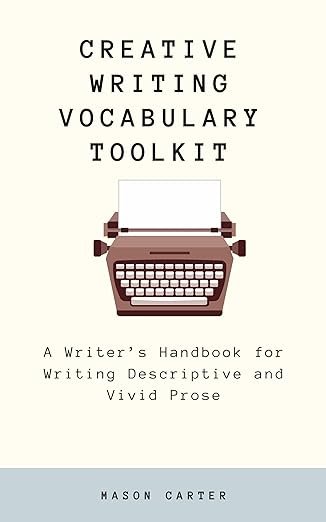
Mason: The most difficult book to write so far has been Creative Writing Vocabulary Toolkit: A Writer’s Handbook for Writing Descriptive and Vivid Prose. Unlike my other works, which are often personal or philosophical in nature, this book required me to compile years of notes, word lists, and linguistic insights I had gathered from my extensive reading.
I had to sift through and organize countless words and expressions I had collected over time—specific vocabulary for describing sensory experiences like taste, smell, and touch, as well as terminology for clothing across different historical periods. It was a massive undertaking, requiring not just research but careful structuring to ensure the book would be both practical and inspiring for writers.
It was challenging but rewarding, as I wanted to create something that could genuinely help writers enhance their descriptive abilities and bring their prose to life.
Fiza: You seem to have a passion for Gothic poetry. Why is that so?
Mason: I think my passion for Gothic poetry stems from its deep emotional intensity, its exploration of the macabre, and its ability to capture the beauty in darkness. There’s something profoundly raw and honest about the Gothic—it doesn’t shy away from sorrow, longing, or existential dread. Instead, it embraces these emotions and turns them into something hauntingly beautiful.
One of my all-time favorite poems is The Raven by Edgar Allan Poe—it sends chills through my body every time I read it. I also love his Annabel Lee and Alone. I don’t know, I guess I just have a natural tendency toward Gothic and absurdist literature. I’ve always been drawn to writers like Jean Genet, Arthur Adamov, Samuel Beckett, and Schopenhauer. I loved Edgar Allan Poe from a very young age, and his works have stayed with me ever since.
While my reason draws me to thinkers like Kropotkin and Murray Bookchin, my heart gravitates toward absurdism and Gothic literature. Even as a child, I was fascinated by the eerie and the unconventional—my favorite shows were The Addams Family and The Munsters. Gothic poetry allows me to explore themes of love, loss, mortality, and the human psyche in a way that feels deeply personal yet universally resonant. It’s a space where beauty and horror coexist, and I think that contradiction is what makes it so powerful and compelling.
Fiza: Who is your favorite philosopher? Dwell on why this philosopher and his works mean a lot to you or how he changed your overall worldview.
Mason: It’s difficult to name just one philosopher as my absolute favorite because different thinkers have shaped different aspects of my worldview. However, if I had to choose, I would say Murray Bookchin has had the most profound influence on me.
Bookchin’s philosophy of libertarian municipalism and social ecology completely reshaped how I understand political and social structures. His critiques of hierarchy and centralized power made me see beyond traditional leftist frameworks, pushing me toward grassroots, community-driven solutions rather than top-down systems. What makes Bookchin’s work stand out is that he doesn’t just critique capitalism—he offers tangible alternatives that focus on direct democracy, ecological sustainability, and cooperative self-governance. His emphasis on prefiguration—the idea that we must start building the world we want in the here and now—resonates deeply with me.
Before I encountered Bookchin’s works, my understanding of socialism was mostly shaped by classical Marxist theories. Reading him, however, opened my eyes to the failures of state socialism and the importance of decentralization. His writings taught me that true freedom is not just economic equality but also political and ecological liberation.
That said, my heart also leans toward absurdist and existentialist thinkers like Schopenhauer, Jean Genet, and Samuel Beckett. Their exploration of existential dread, suffering, and the absurdity of life complements the rationalism of Bookchin’s ideas in an almost ironic way. If Bookchin gives me hope for a structured, free society, these thinkers remind me of the inescapable chaos of existence.
Ultimately, Bookchin gave my reason something to hold onto, while absurdist and Gothic literature give my emotions a space to wander. It’s this balance between radical optimism and existential realism that continues to shape how I see the world.
Fiza: You said in your book ‘A Philosophy of Scars’ that optimists usually are the people who commit suicide, not pessimists. This is because pessimists don’t have any expectations from the things that make up their lives; they see things as they are. I would also have added that they are resigned to their fate and yet keep going, canceling every next date on the calendar like a prisoner in jail cancels the same till he is sentenced to death. Your comments on that, please, Professor Mason?
Mason: That’s a beautifully haunting way to put it, and I deeply resonate with the imagery of a prisoner canceling dates on a calendar, trudging forward despite knowing how the story ends.
That line actually comes from one of my favorite pessimists, Emil Cioran. He is my personal escape—his The Trouble with Being Born and On the Heights of Despair are among my all-time favorites, books I keep returning to time and again. Philosophically, I find pessimism rational. It strips away illusions, presenting life as it is, without the comfort of false hope. Yet, in that stark honesty, there’s a strange form of liberation.
Fiza: Are you an optimist or a pessimist? On that note, what is your opinion of readers who demand to read ONLY books with happy endings?
Mason: I’d say I’m more of a realist with strong pessimistic tendencies. I see things as they are, not as I wish them to be. But that doesn’t mean I don’t appreciate moments of joy, love, or hope—I just don’t romanticize them as permanent states of being.
As for readers who only want happy endings, I completely understand their perspective. Some people turn to books as an escape, a way to find comfort in a world that is often harsh and unpredictable. There’s nothing wrong with that. But I do think literature should reflect the full spectrum of human experience, including suffering, loss, and ambiguity. Life itself doesn’t always wrap things up neatly with a bow, so why should every story? Some of the most powerful books leave you unsettled, questioning, or even haunted—and I believe there’s value in that.
Fiza: Name your favorite Gothic fiction writer and give some reasons for your answer.
Mason: Edgar Allan Poe, without a doubt. His ability to craft an atmosphere of dread, melancholy, and psychological torment is unmatched. His works aren’t just about horror; they explore the fragility of the human mind, the inevitability of death, and the unsettling beauty of sorrow.
Poe’s prose is just as mesmerizing—The Fall of the House of Usher, The Tell-Tale Heart, and Ligeia are masterpieces of Gothic storytelling, blending madness, obsession, and decay into something almost poetic.
I’ve loved Poe since childhood, and his influence has stayed with me. His writing taught me that horror isn’t just about ghosts and gore—it’s about what lingers in the shadows of our minds, the fears we don’t speak of, and the beauty hidden in despair.
Fiza: Who are some of your favorite writers or poets, and what do they mean to you as a writer and professor?
Mason: I guess we already covered this.
Fiza: Which is your favorite Shakespearean play? Mine is Julius Caesar, for sentimental reasons.
Mason: Romeo & Juliet, I read it for the first time when I was in 8th standard. It’s therefore nostalgic to read it every time. It brings back memories associated with it.
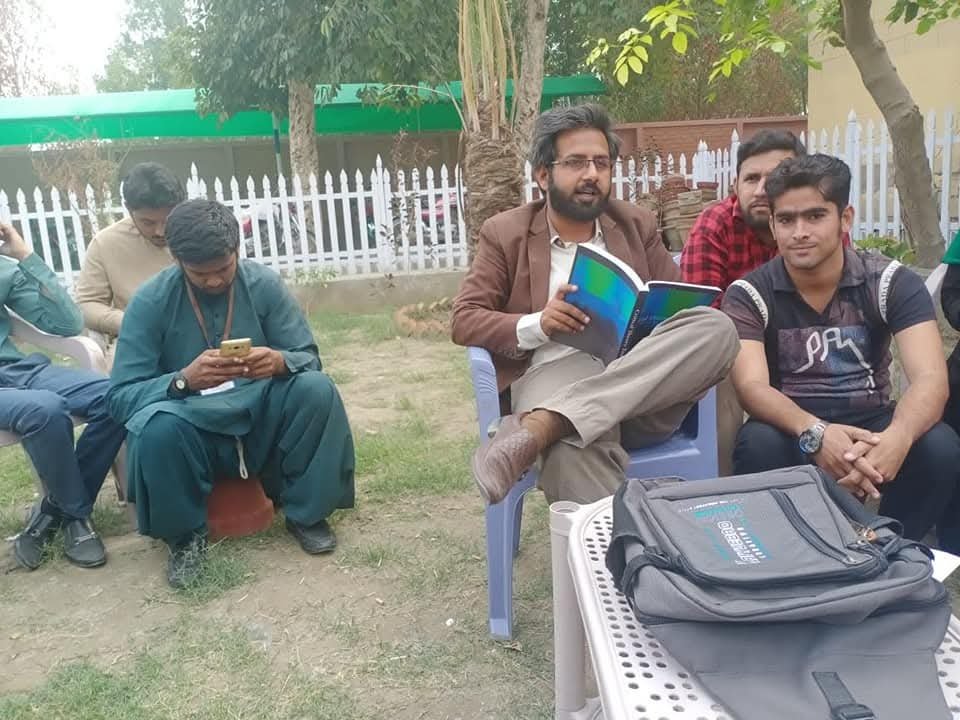
Fiza: Do you teach Shakespeare to your students in any course or as a separate subject? Which plays of Shakespeare do you focus on, or do you specialize in the Bard’s sonnets?
Mason: Yes, I have taught Hamlet, Macbeth, and Shakespeare’s sonnets a few times as part of the syllabus. However, I often gravitate toward subjects like Critical Literary Theory & Practice, Modern Poetry, American Literature, Romantic Poetry, and Classics in Drama, which align more with my academic interests.
Fiza: Which was the best Shakespearean play you’ve ever taught in a classroom, and why do those teaching moments mean so much to you?
Mason: Hamlet has been the most rewarding Shakespearean play to teach. Its depth, existential themes, and exploration of madness, fate, and human nature spark some of the most thought-provoking discussions in the classroom. Watching students unravel its layers, question Hamlet’s choices, and connect the play’s dilemmas to their own lives makes the experience truly meaningful. It’s a play that never exhausts itself—every reading, every discussion, brings out something new.
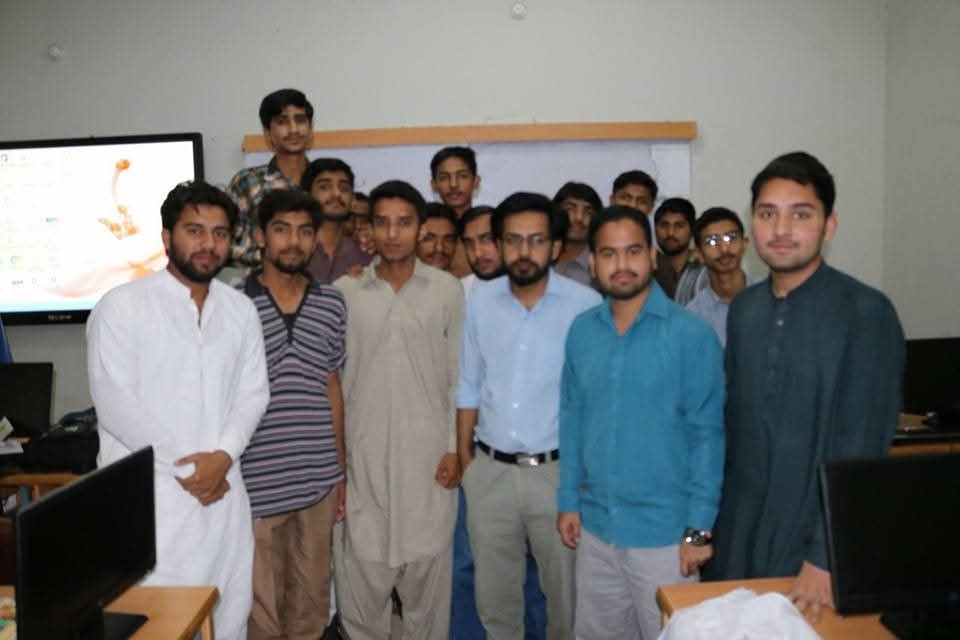
Fiza: Professor Mason, you’ve even started an online teaching program for students interested in furthering their education in English Literature. It is called ‘Class With Mason’. Can you tell my readers here on insaneowl.com something more about this organization and its purposes in the field of education?
Mason: Class With Mason is an initiative I started to make English Literature and critical thinking more accessible to students worldwide. It’s an online platform where I share lectures, reading materials, and insights into literary theory, classic and modern literature, and philosophy. The goal is to bridge the gap between academic study and independent learning, helping students and literature enthusiasts engage deeply with texts, sharpen their analytical skills, and develop a love for literature beyond just passing exams. I aim to create a space where learning is not just about rote memorization but about meaningful discussions and intellectual growth.
Fiza: ‘Class With Mason’ looks like a tempting place to savor the wonders of the English Language and especially Literature. Why should my readers patronize this particular site or institute? Do you man this whole establishment on your own?
Mason: Thanks for checking it out! Class With Mason is a labor of love, and yes, I personally manage it—from lectures to writing study materials, and engaging with students. What sets it apart is its focus on deep literary exploration rather than just surface-level summaries. If you love literature, critical theory, and philosophy, and want to engage with texts beyond what traditional classrooms offer, then this is the place for you. It’s not just about learning—it’s about experiencing literature in a way that stays with you.
Fiza: You read my short story ‘Caste Metal’ and reviewed it on Goodreads. You rewarded it five stars and stated that it reminded you of the writings of Guy de Maupassant. Were you serious about that comment or trying to make me feel important? Had you also heard about the Caste System in India previously before you read about it in my short story?
Mason: Nope, surely it was my honest review. We used to have a subject at our campus on short stories, and I used to teach Guy de Maupassant and his works. I always admired his directness and how he magnified seemingly simple characters, bringing a deep philosophical layer to them—like Maitre Hauchecorne in The Piece of String. I found a similar depth in Caste Metal. I started reading it at 11 o’clock at night and couldn’t put it down until I finished. It kept the suspense alive, and every moment, I found myself thinking, What is going to happen next?
And yes, I have many students who belong to Hinduism, so we often have discussions on various topics, including racism, the caste system, and more.
Fiza: Is there a form of Caste System practiced in Pakistan that is similar to the Caste System of India? I’m referring only specifically to the 4 varna system.
Mason: Pakistan does not have the four-fold Varna system in the same structured way as it exists in Hinduism, but caste-like social hierarchies do exist, largely influenced by history, tribal structures, and socio-economic class divisions. Many social groups in Pakistan still function within rigid hierarchical systems based on profession, ethnicity, and ancestry.
For example, there are historically privileged landowning groups (zamindars or jagirdars), and then there are those who have been historically marginalized in occupations linked to sanitation work or other forms of labor. Some communities also practice endogamy (marrying within the same group), which mirrors caste-based restrictions.
Fiza: An AI-powered software last year 2024 informed me after studying my writing that my fiction style was similar to that of Wally Lamb and Tom Wolfe. After reading my ‘Caste Metal’, you’ve told me that it reminds you of Guy de Maupassant. I will be strutting like a peacock in glee for the rest of 2025! But which writer does your fiction resemble in your opinion? Or whose style do you resemble?
Mason: Thanks, I am humbled if you feel that way. You are an accomplished writer. No doubt about that. I cannot compare myself with literary giants. I guess that’s for readers to decide. I merely attempt to express what I understand.
Fiza: Choose one from the following and give a reason for your choice:
Edgar Allan Poe, P.B. Shelley, Mikhail Bakunin, Nietzsche
Mason: I’d choose Mikhail Bakunin because his ideas on libertarian socialism deeply resonate with my worldview. Bakunin’s critique of authority, his vision of a decentralized and self-managed society, and his emphasis on spontaneous organization over hierarchical control are foundational to my understanding of political philosophy.
That said, if I were picking based on literature, Edgar Allan Poe would be my choice—his gothic themes, psychological depth, and mastery of atmosphere have influenced my love for dark, introspective storytelling.
Fiza: Where can my readers here on Insaneowl.com easily reach you, Professor Mason?
Mason: I guess on Goodreads.
Fiza: Where can my readers easily purchase your books globally and especially in India? I get a lot of readers and viewers from India on my page.
Mason: They can easily find my books on Amazon.in.
Fiza: Where do you mostly do your reading? Do you have a favorite reading nook or room?
Mason: I usually read wherever I can, but my favorite reading spot is a quiet corner with a cup of coffee—whether that’s at home, in a cozy café, or even in my office when I find a peaceful moment. I don’t need a grand reading nook; just a comfortable seat, good lighting, and a book that pulls me in. If I had to pick an ideal setting, it would be a dimly lit room with a warm lamp, a slightly worn-out armchair, and a stack of books within arm’s reach.
Fiza: I wrote most of my books in several places like numerous coffee shops, tea kiosks, libraries, in my office cum writing hut and now in my cozy study in my apartment in Badlapur which is a town on the outskirts of Mumbai. Where have you written most of your books?
Mason: That sounds absolutely wonderful—having a cozy study in Badlapur must make for an inspiring writing sanctuary. Writing in tea kiosks, libraries, and coffee shops adds such a rich, wandering-writer feel to your journey. I imagine each of those places has left an imprint on your stories, adding depth and character.
For me, I mostly write at home in solitude, where I can fully immerse myself in the process. But it’s not always just me—my daughter often comes to play with me while I’m working, and I take breaks to spend time with her. Sometimes, I play her some kids’ videos on my phone while I write, balancing the worlds of storytelling and fatherhood. It’s a rhythm that keeps me grounded, and in a way, her presence makes the writing process even more meaningful.
Fiza: Which is your poison – coffee or tea while you write?
Mason: Coffee is my true companion when I write. I used to be a chain smoker—two packs a day—but recently, I switched to vaping to quit smoking. It’s helped a lot, though I do occasionally smoke. These days, I vape a lot, and funnily enough, my vape has a coffee flavor—so it’s like double the dose of my favorite thing! A strong cup of coffee and a few puffs of my vape, and I’m all set to dive into writing.
Fiza: Where do you see your writing career 5 years from now?
Mason: Five years from now, I hope to see my writing career flourish with more books across different genres, expanding both my fiction and non-fiction repertoire. I want to refine my craft further, reach a wider audience, and contribute meaningfully to literature and education. ‘Class With Mason’ will hopefully have grown into a more established platform, helping students and writers worldwide. Most importantly, I just want to keep writing—whether it’s poetry, philosophy, or storytelling—while staying true to my voice and passion.
Conclusion
Fiza: It was wonderful having Pakistani author and Professor Mason Carter here on Insaneowl.com and learning so much about his academic qualifications, his online educational institute, his work as a professor, and his latest offerings to the reading public. Do get your copy of his books today! I’m waiting to return to bed to read his ‘A Philosophy of Scars: A Story of Broken Hearts and Overthinking Minds’ on my Kindle Fire. I love well-written books with substance, and I cannot lie! (But I will lie down nevertheless while reading the book; fixing a Kindle Fire here in India is not easy!)
If you want to check out some more delicious indie-author book reviews, you can continue browsing insaneowl.com.
If you want more book reviews, indie author interviews, book analyses, short story analyses, poems, essays, essay analyses, and other bookish content, check out my blog, Insaneowl.com. If you want to purchase my books, you can check the products page of my blog or Amazon. There is a lot of good stuff to buy! Happy reading to you always!
©2025 Fiza Pathan


Leave a Reply